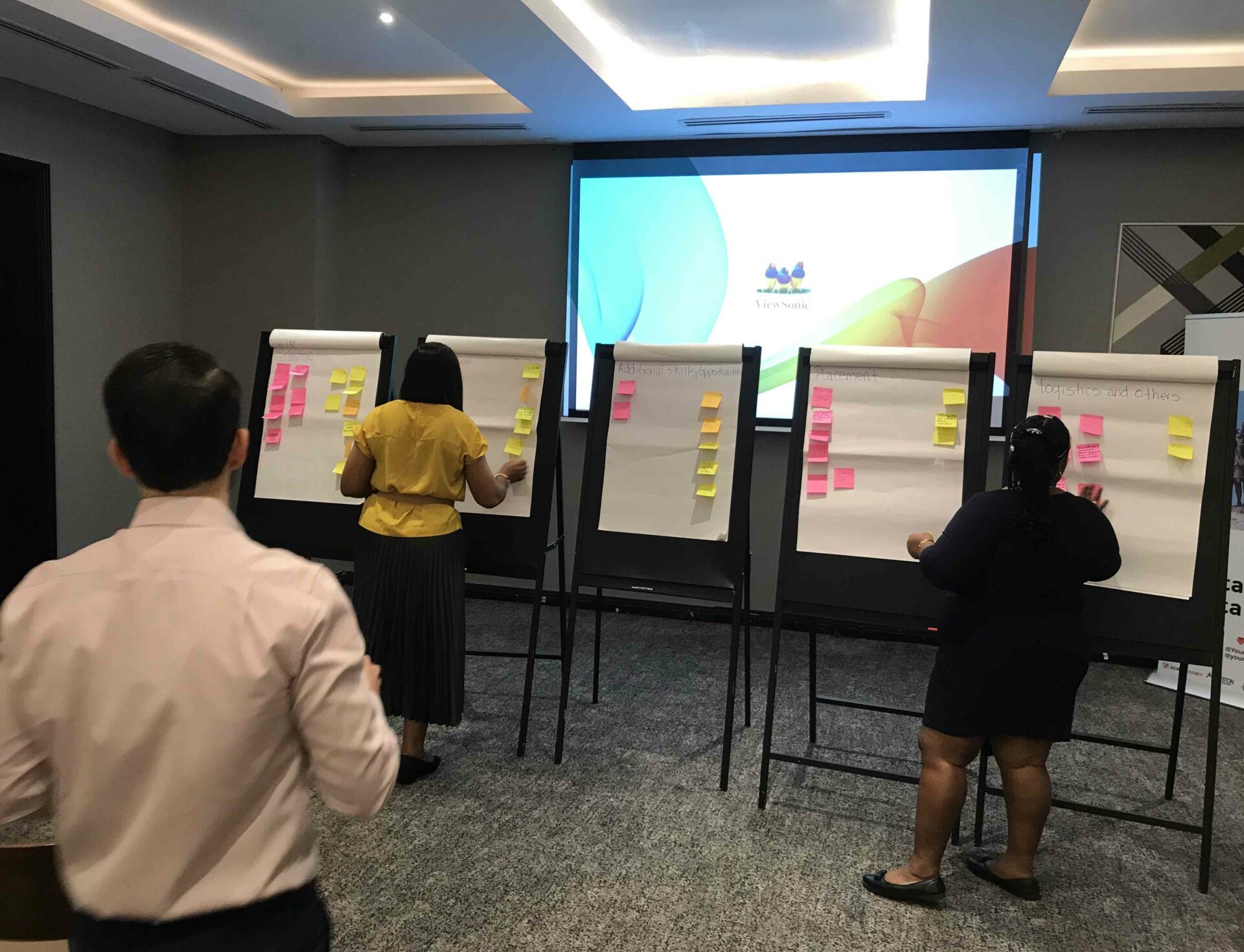CAIP Information Session
On December 3, 2024, an information session was held to provide more details on the internship programme.
Click HERE to watch.
Application Closed On Friday December 13, 2024
Background
Cloneshouse is always seeking passionate, goal-oriented, diligent individuals who are interested in the growing field of Monitoring and Evaluation and are willing to invest time and effort to learn the theoretical and practical aspects of the various Monitoring and Evaluation components; including the best practices that are obtainable per time.
As part of our commitment to strengthening capacities on evaluation, especially for young people – we rolled out the 7-month Cloneshouse African Internship Program (CAIP) for the first time in October 2019 to fill the gaps of emerging evaluators that have been identified from our past work. We had two females on that first-ever batch which was not pre-determined in any way, as only female applicants of the opportunity turned for the screening test. Since then, we have been fortunate to have a blend of both genders follow through the entire process and join the program.
The application closed by 5pm GMT+1 on Friday, December 13, 2024.
How Many Interns Per Cohort
Currently, we have increased the number of vacancies for interested individuals per cohort. We started out with two interns, increased to four interns, then eight interns. For January 2025 cohort, we took in eight (8) interns in total, from around Africa.
Program Experience
Typically, interns go through a three-week Basic Monitoring and Evaluation course and a six-week Results-Based Monitoring and Evaluation course, as well as work on projects with mid-level and senior consultants.
Our interns also get the opportunity to be involved in proposal tendering, monitoring and evaluation stand-ups, desk research, and rendering technical assistance to some of our partners via capacity strengthening programmes, which exposes them to various methods of facilitating and implementing successful and impactful M&E training.
What our Past Interns Have to Say
As a young program officer in a thriving non-profit organization in Nigeria, I had the opportunity to be on some development projects, supporting the organization in supervising and managing her programs and initiatives. But there was something missing; the ability to effectively conduct monitoring and evaluation assessment on these projects with other team members. I applied for the Cloneshouse Nigeria Monitoring and Evaluation Internship programme, believing that it will afford me the opportunity to acquire the requisite knowledge on M&E. I consider this opportunity an invaluable one. The team took me through some courses with rich practical case studies that deepened my understanding of the concepts, theories and practices of M&E. It was a decision I was glad I made.
My internship program at Cloneshouse has provided an in-depth insight on the development of Monitoring and Evaluation plan or framework, on how its utilization can help with the strategic implementation of a project or programme from start to finish. And most importantly the benefit of working as a team with a common goal and common passion to make a change. The internship has given me the passion and curiosity to be a changemaker with the right skills and tools to implement a project.
Do We Pay Interns?
We deliberately refer to this as an unpaid internship, but practically, it functions as a paid apprenticeship. Cloneshouse does not provide a salary to interns; however, at the discretion of project teams, interns may earn a stipend from projects they are attached to. Per diems and travel expenses are also provided if the intern agrees to travel for Cloneshouse projects outside their location. It is important to note that this internship is a 100% remote engagement. Notably, some of our past interns have become junior consultants, actively participating in projects within the firm.
There have been arguments and counterarguments about whether companies should pay their interns. Interns are valuable in any establishment, as they provide much-needed support, even though their mistakes can sometimes be costly. Interns are also easier to train, which means that if the company eventually hires them, they often become excellent employees. Whether an intern is paid or not, the most important aspect is that there is a clear agreement between both parties — the employer and the intern.
Application Process
Announcements about our internship opportunity are made known via our newsletter which you get to see when you subscribe. Be the first to know about subsequent internship openings when you subscribe to our newsletter on our homepage.
On the CAIP application form, you will be asked to fill a form that will ask you basic questions about who you are and request a statement of interest.
All applications are stored in a database that is consulted by our HR Team based on business needs. Please note that candidates will not hear from us unless they are shortlisted by our HR Team. Candidates who are selected from the applicants’ pool for further review will subsequently be required to provide their CV and proof of enrollment in a graduate degree. CVs should best contain 3 Referees. A referral form is attached to offer letters issued to successful candidates who are required to submit the form alongside their proof of acceptance of the internship offer.
At Cloneshouse, we encourage cooperative agreements with individuals, international and national partners. If you would like to support the internship program for young emerging evaluators, you can reach out to our Nigerian team at abuja@cloneshouse.com




